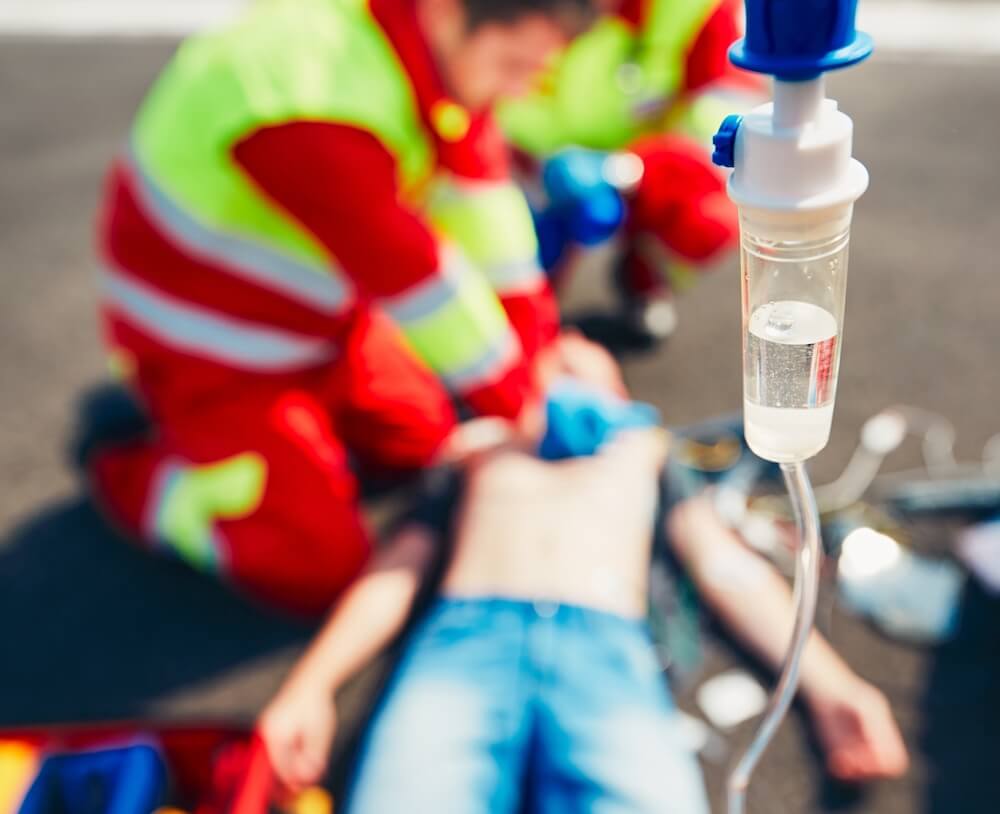Dopamine is a common medication that you will certainly come across in your ACLS certification or recertification course. Continue reading to see what you should know about this medication and how it can be used to provide life-saving treatment.
When obtaining your Advanced Cardiac Life Support (ACLS) certification or recertification, you will need to learn about the different kinds of medications that you’ll come into contact with when working in an emergency environment.
ACLS certification courses are geared toward medical professionals who frequently come into contact with patients experiencing cardiovascular emergencies. Thus, knowing which medications can be used to treat these types of emergencies is very important.
At eMedCert, we offer 100%-online ACLS certification and online ACLS recertification courses. In these classes, we cover all the essential information required to work in an emergency environment. This includes information regarding life-saving medications.
In this blog, we’ll take a closer look at one of these medications: dopamine. We will delve into how it is used in emergency environments and what you need to know in order to administer it. Continue reading to learn more about utilizing this life-saving medication.
Overview of Dopamine:
Dopamine is an ACLS drug that is used to treat certain heart conditions. In particular, it is used in cases of bradycardia, which is a condition that causes the heart to beat too slowly. Dopamine is also used to treat hypotension, which is characterized by abnormally low blood pressure.
Dopamine is actually a second-line treatment for bradycardia. This means that it should only be administered if atropine, bradycardia’s first-line of treatment, is rendered ineffective.
Dopamine is a neurotransmitter that is used to maintain heart rate and blood pressure by constricting blood vessels, increasing heart rate as well as the heart’s contraction force. This is why it’s so effective when someone is suffering from a dangerously slow heartbeat or low blood pressure.
Dopamine Dosage:
- The typical infusion rate for dopamine is 2-20 mcg/kg/min.
- In addition, it’s important to titrate according to patient response.
- Then, taper the dopamine on and off slowly.
Additional Notes on Dopamine Usage:
- Extravasation (or leakage) of dopamine can be very serious, causing tissue damage and necrosis.
- Use caution when administering a high dosage of dopamine through a peripheral IV site.
- Ensure that you correct hypovolemia with volume replacement before administering dopamine.
- In some cases, dopamine may cause tachyarrhythmias and/or excessive vasoconstriction due to the fact that it causes the heart to beat faster.
- Ensure that you do not mix dopamine with sodium bicarbonate.
Related Article: For a brief review of all the ACLS medications you should be familiar with, check out our ACLS Drugs Video Review article.
Additional ACLS Medications:
Conclusion
If you’re looking to obtain your ACLS certification or recertification online, click the button below that corresponds to your required course to learn more. In addition, you can reach out to our team for more information on how to obtain your certification today.
